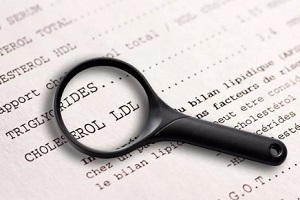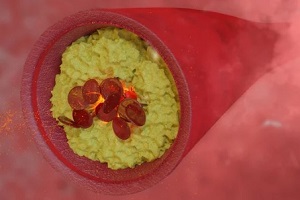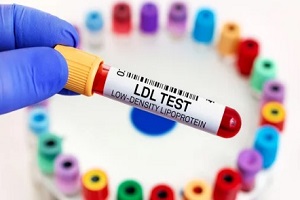 High cholesterol is quite common, though many people have no idea their levels are higher than they should be. Cholesterol isn’t inherently bad. Your body needs it to build healthy cells. But too much cholesterol circulating in your bloodstream can put you at increased risk of cardiovascular and other health issues later in life.
High cholesterol is quite common, though many people have no idea their levels are higher than they should be. Cholesterol isn’t inherently bad. Your body needs it to build healthy cells. But too much cholesterol circulating in your bloodstream can put you at increased risk of cardiovascular and other health issues later in life.
One concerning type is LDL cholesterol. Also called “bad” cholesterol, LDL contributes to plaque buildup in artery walls when at high levels. If you’ve been told your LDL cholesterol is elevated, it’s helpful to understand what may be causing it. This way, you can implement changes that will lower your cholesterol to healthier levels.
What is Cholesterol?
Cholesterol is a fatty, almost waxy, substance that moves through your bloodstream on lipoproteins. There are a few types that transport cholesterol:
- LDL carries cholesterol to tissues and organs. High levels indicate a greater risk for artery plaque.
- HDL picks up excess cholesterol and returns it to the liver, where it is processed. This is the “good” cholesterol.
- Triglycerides are a type of fat that floats around in your blood and stores unused calories for use as energy later. As with LDL, high levels increase the risk of heart problems.
When tested, you’ll get a lipid profile showing total, LDL, HDL, and triglyceride cholesterol levels.
What is High Cholesterol?
Doctors consider cholesterol high when:
- Your overall cholesterol is higher than 200 mg/dL
- Your LDL cholesterol level is in excess of 100 mg/dL
- HDL cholesterol falls below 40 mg/dL for males or 50 mg/dL for females
High LDL is most concerning, as it directly contributes to artery blockages. The higher your LDL reading, the greater your chances of suffering a heart attack or a stroke in the future. Let’s explore what could be elevating your LDL.
Dangers of High LDL
Initially, high LDL cholesterol causes no symptoms. But over time, it quietly damages arteries. Dangers include:
 Atherosclerosis: Fatty plaque builds up in artery walls, narrowing passageways.
Atherosclerosis: Fatty plaque builds up in artery walls, narrowing passageways.- Coronary artery disease: Plaque can hamper blood from flowing to your heart and potentially lead to you experiencing chest pain.
- Heart attack: A sudden plaque rupture causes clotting that entirely blocks a heart artery, damaging the muscle.
- Stroke: A stroke is quite similar to a heart attack and results from a blockage in an artery to or in the brain.
Causes of High LDL
There are several potential causes for high LDL cholesterol levels, ranging from lifestyle habits to medical conditions.
Lifestyle Factors
For many people, an unhealthy lifestyle plays a significant role in raising LDL cholesterol levels. Here are some of the behaviors that could cause high LDL cholesterol:
- Poor diet: Saturated/trans fats found in fatty meats, whole dairy, and many processed foods boost LDL substantially. Too little fiber from produce and whole grains also plays a role.
- Inactivity: Not exercising lowers HDL and allows LDL to rise. Try to get about 150 minutes every week of moderate-intensity activity.
- Obesity: Excess weight strains cholesterol metabolism, directly increasing LDL. Losing just 5-10% of weight can help.
- Smoking: Chemicals from smoking lower HDL while raising LDL cholesterol.
- Heavy alcohol: Drinking more than moderate amounts regularly elevates total and LDL cholesterol over time.
Medical Conditions
Certain medical issues can also play a role in your cholesterol metabolism and cause high LDL cholesterol, including:
- High cholesterol: Genetic diseases such as familial hypercholesterolemia impair LDL removal, causing very high levels.
- Chronic kidney disease: Damaged kidneys cannot properly process cholesterol, raising LDL.
- Diabetes: Insulin resistance and elevated blood sugar negatively impact cholesterol and LDL.
- Hypothyroidism: A sluggish thyroid slows metabolism, increasing LDL.
- HIV/AIDS: The infection itself and treatments can significantly elevate LDL cholesterol.
- Lupus: Inflammation from this autoimmune disorder interferes with cholesterol transport and clearance.
Medications
Certain prescription medications have the side effect of increasing LDL cholesterol, such as:
- Acne drugs
- Certain cancer medications, including cyclophosphamide
- Blood pressure pills such as thiazide diuretics
- Anti-rejection drugs for people who have had an organ transplant
Talk to your doctor before you stop taking any drugs that raise cholesterol. There may be ways to switch drugs or counteract the effects.
Other Factors
A few other factors may contribute to high LDL cholesterol, such as:
- Genetics: Some inherited genes make it harder to remove LDL cholesterol.
- Age: Cholesterol metabolism changes with age, often increasing LDL. High cholesterol is most common in middle age and beyond.
Preventing High LDL
The good news is that, in many cases, high cholesterol is preventable through lifestyle changes. Here are some tips to avoid unhealthy LDL cholesterol levels:
 Follow a heart-healthy diet low in saturated fat, trans fat, and cholesterol while emphasizing fiber-rich produce, whole grains, nuts, seeds, and beans.
Follow a heart-healthy diet low in saturated fat, trans fat, and cholesterol while emphasizing fiber-rich produce, whole grains, nuts, seeds, and beans.- Get regular exercise. Aim for half an hour of moderately intense activity almost every day.
- Lose extra pounds and keep your BMI at a healthy level.
- Ditch cigarettes and stay away from places where you could breathe in secondhand smoke.
- Don’t exceed one alcoholic drink a day as a woman or two per day as a man.
- Take drugs to address thyroid disorders and similar conditions that impact cholesterol.
Get your cholesterol checked regularly. If you find that your levels are elevated, work with your doctor to lower LDL by implementing lifestyle changes and medication as needed. Keeping cholesterol under control now prevents major heart issues down the road.
Improve Your Heart Health by Managing High Cholesterol with Imperial Center Family Medicine
Having high cholesterol isn’t exactly the best news, but that doesn’t mean there isn’t anything you can do about it. A wide range of factors can influence your LDL levels. Still, luckily, many of them are ones you can control, especially with the help of Imperial Center Family Medicine’s team of expert healthcare professionals.
With regular cholesterol screenings and a proactive plan customized to your situation, Imperial Center Family Medicine can help you make a real difference in your cholesterol. Contact us today at 919-873-4437 or online, and let us help you on your journey to a healthier and stronger heart.
